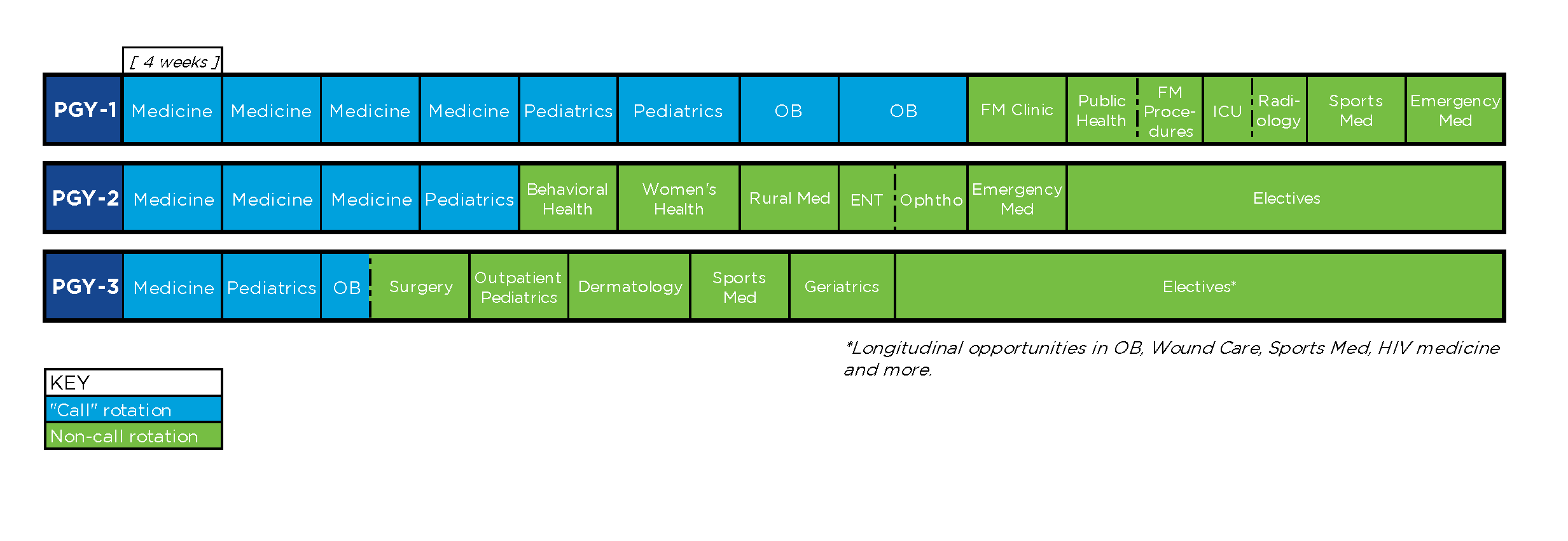Curriculum
At the Tallahassee Memorial Family Medicine Residency Program, we’re an 11-11-11 community program with a passion for service at a hospital that is growing its academic footprint. With three new residencies in the past 10 years – internal medicine, general surgery and pharmacy – TMH offers benefits of both community and academic training experiences while maintaining a sense of being “unopposed.” Our residents are the only learners on pediatric, obstetric and emergency services!
We are seated in the heart of the Florida Panhandle, in a bustling capital city with the government sector and multiple universities, surrounded by over a hundred miles of rural land in all directions. This provides great learning opportunities across demographics and pathologies and in multiple learning environments, both urban and rural.
The faculty care deeply about resident learning and wellbeing. Our inpatient medicine and OB services are staffed by family medicine core faculty, modeling what it is like for family doctors to provide care in both inpatient and outpatient settings. TMH offers broad and strong training in both hospital medicine and a primary care clinic, and we care for significant OB and pediatric populations. After graduation, our residents go on to serve in a variety of settings, from rural, full-scope, inpatient/outpatient practices, to urban hospitalist, urgent care, ER or primary care work.
Here is an outline of our 3-year curriculum. The rotations are in no particular order within each year, and there is some flexibility in non-call rotations between PGY-2 and -3 based on resident interests.

We believe that learning to care for acutely ill patients in the inpatient setting during residency builds not only knowledge but also efficiency, teamwork and endurance. As a graduate of our program, you will leave with a strong foundation in hospital medicine, allowing you to serve in nearly any setting you choose, whether that is as a primary care physician who better understands the spectrum of health and illness; as a hospitalist embracing modern models of care; or as a full-scope rural family doctor caring for patients across outpatient and inpatient settings. As training progresses, more and more time is allotted for outpatient medicine and electives, caring across settings and age groups.
Please see below for some additional details about our program:
Orientation takes place in the two weeks prior to start of PGY-1.
Hospital medicine night call is covered in a night float structure taking place in 5-night stints while on rotation, as well as weekend night float during non-call rotations, for a total of approximately 10 weekends over the course of 3 years.
We have interest groups that meet quarterly to review topics in women’s health and obstetrics, ER and rural medicine, sports medicine and leadership and business of medicine.
Residents can participate in longitudinal experiences in areas such as OB, wound care, sports medicine and HIV medicine, based on individual interests.
Our family medicine clinic offers directed learning opportunities in “specialty clinics” that residents participate in routinely throughout the course of their training. These include point-of-care ultrasound (POCUS), medication for opiate use disorder (MOUD, formerly “MAT”), outpatient gynecological procedures, adolescent medicine, neurology, urology, spirometry, nutrition, anticoagulation, integrated behavioral health, skin surgery and sports medicine.
Over the course of 3 years all residents will carry out scholarly activity such as a quality improvement project and are encouraged to present at local, state-wide and national conferences.
